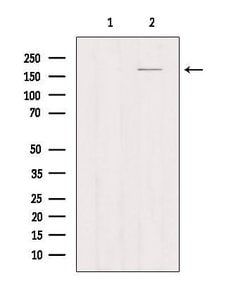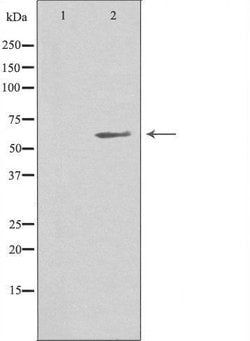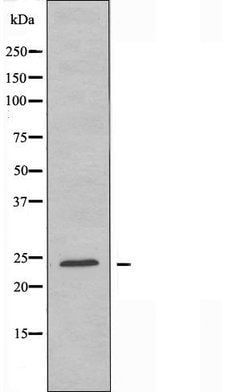CD206 Polyclonal Antibody, Invitrogen™
Manufacturer: Thermo Scientific
Select a Size
| Pack Size | SKU | Availability | Price |
|---|---|---|---|
| Each of 1 | PIPA5101657-Each-of-1 | In Stock | ₹ 45,968.50 |
PIPA5101657 - Each of 1
In Stock
Quantity
1
Base Price: ₹ 45,968.50
GST (18%): ₹ 8,274.33
Total Price: ₹ 54,242.83
Antigen
CD206
Classification
Polyclonal
Conjugate
Unconjugated
Gene
Mrc1
Gene Alias
AW259686; bA541I19.1; CD206; CELE_Y39A3CR.4; CLEC13D; CLEC13DL; C-type lectin domain family 13 member D; C-type lectin domain family 13 member D-like; ddp-1; hMR; Human mannose receptor; macrophage mannose receptor 1; Macrophage mannose receptor 1-like protein 1; mannose receptor, C type 1; mannose receptor, C type 1-like 1; Mitochondrial import inner membrane translocase subunit Tim8; MMR; MR; MRC1; MRC1L1; tim-8; Y39A3CR.4
Host Species
Rabbit
Purification Method
Affinity chromatography
Regulatory Status
RUO
Gene ID (Entrez)
17533, 291327, 4360
Content And Storage
-20°C
Form
Liquid
Applications
Immunocytochemistry, Immunohistochemistry (Paraffin), Western Blot
Concentration
1 mg/mL
Formulation
PBS with 50% glycerol and 0.02% sodium azide; pH 7.4
Gene Accession No.
P22897, Q61830
Gene Symbols
Mrc1
Immunogen
A synthesized peptide derived from human MRC1(Accession P22897), corresponding to amino acid residues P642-N692.
Quantity
100 μL
Primary or Secondary
Primary
Target Species
Human, Mouse, Rat
Product Type
Antibody
Isotype
IgG
Description
- Antibody detects endogenous levels of total MRC1
- CD206 (MSR, Mannose receptor, MRC1) is a 175 kDa transmembrane protein belonging to the group of pattern recognition receptors
- CD206 is predominantly expressed in tissue macrophages, dendritic cells, a subpopulation of endothelial cells and sperm cells
- CD206 is thought to play a role in the innate and adaptive immune response
- CD206 is also expressed on microglia and mato cells of the brain but not astrocytes or neurons
- CD206 also mediate the recognition and uptake of a variety of macromolecules, including modified lipoproteins, advanced glycation end (AGEs) products and amyloid b-protein (Abeta)
- While the normal role of CD206 is associated with cell adhesion and host defense mechanisms, it also has been implicated in the development of atherosclerosis and Amyloid beta deposition in Alzheimer's disease (AD)
- CD206’s gene encodes the class A macrophage scavenger receptors, which include three different types (1, 2, 3) generated by alternative splicing
- The isoforms type 1 and type 2 are functional receptors and are able to mediate the endocytosis of modified low density lipoproteins (LDLs)
- The isoform type 3 does not internalize modified LDL (acetyl-LDL) despite having the domain shown to mediate this function in the types 1 and 2 isoforms
- CD206 has an altered intracellular processing and is trapped within the endoplasmic reticulum, making it unable to perform endocytosis
- The isoform type 3 can inhibit the function of isoforms type 1 and type 2 when co-expressed, indicating a dominant negative effect and suggesting a mechanism for regulation of scavenger receptor activity in macrophages
- Other diseases associated with CD206 dysfunction include leprosy and Gaucher’s Disease.



